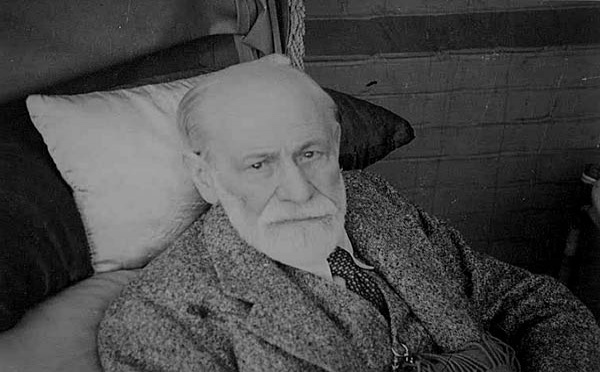L'American Psychological Association (APA) fait l'objet de critiques de la part de certains de ses membres et d'autres professionnels pour avoir affirmé qu'il était acceptable pour des psychologues d'aider lors d'interrogatoires militaires.
L'American Psychological Association (APA) fait l'objet de critiques de la part de certains de ses membres et d'autres professionnels pour avoir affirmé qu'il était acceptable pour des psychologues d'aider lors d'interrogatoires militaires.
Une pétition affichée sur Internet contre la politique de l'APA a été signée par plus de 1300 membres de cette organisation et d'autres psychologues. Des forums de protestation sont également prévus à l'occasion du congrès de l'association, le mois prochain, à La Nouvelle-Orléans. Certains membres ont de plus menacé de ne pas verser leurs cotisations, voire même de quitter l'association.
Le malaise a été provoqué par une politique de l'APA émise l'an dernier, stipulant que s'il est contraire à l'éthique pour un psychologue de s'impliquer dans de la torture ou tout autre acte dégradant, il est acceptable pour lui d'agir en tant que conseiller lors d'interrogatoires ou d'activités de cueillette de renseignements à des fins de sécurité nationale.
Cette position trouble des membres de l'association, certaines informations ayant fait état d'agressions commises à la prison américaine de Guantanamo, à Cuba, à celle d'Abu Ghraib, en Irak, ou ailleurs.
http://www2.canoe.com/infos/international/archives/2006/07/20060728-130809.html
Petition To the American Psychological Association (APA) Opposing the U.S. Government's Failure to Abide by the Geneva Conventions and UN Convention Against Torture in the Treatment of Detainees in U.S. Custody, and the Alleged Involvement of Psychologists in the Mistreatment of Detainees
As professionals and others working in the fields of mental health and human rights, we write to express our deep concern with the Bush administration's position that the Geneva Conventions and UN Convention Against Torture do not apply to detainees at Guantánamo Bay, Abu Ghraib, Afghanistan and elsewhere. This stance has become associated with mounting evidence of cruel, inhuman, and degrading treatment of detainees, in some cases amounting to physical and psychological torture.
We are also concerned about persistent allegations that some of our colleagues in psychology and other areas of mental health may have been involved in cases of torture and/or cruel, degrading, and inhumane treatment of detainees; involvement which, if proven, is in direct violation of the American Psychological Association's code of ethical conduct.
There has been controversy within APA about how best to clarify ethical dimensions of psychologists' involvement in what have been referred to as "national security activities." A Presidential Task Force Report concluded that there was a role for psychologists in national security activities and that the APA Ethics Code is "fundamentally sound in addressing the ethical dilemmas that (may) arise in the context of national security-related work." Groups within APA (The Divisions for Social Justice) and groups such as Psychologists for Social Responsibility, however, have argued that in failing to adopt international standards of human rights as the framework for the application of the Ethics Code and in failing to call for an investigation of alleged ethical violations by psychologists, the APA has signaled a lack of resolve in taking its Ethics Code seriously.
We, the undersigned, believe that physical and psychological torture, as well as cruel, inhuman, and degrading treatment of detainees, are ethically and morally repugnant and condemn such treatment of detainees in U.S. custody. We call on all of our colleagues to take an unambiguous stance against torture, as APA did in 1986, and against the participation of psychologists and other mental health workers directly or indirectly in physical and psychological torture or cruel, inhuman, and degrading treatment of detainees.
As professors, clinicians, researchers, and others dedicated to promoting mental health and human rights, we commit ourselves to work within our professional organizations to ensure that standards are established clearly stating that members of our professions may not ethically take part in any way in interrogations involving cruel, inhuman and degrading treatment, as defined by the Geneva Conventions and UN Convention Against Torture.
We call on the APA to state its opposition to and condemnation of methods of coercive interrogation such as sleep deprivation and harassment focused on detainees' religious, ethnic, sexual orientation, or gender identities, and to establish a task force charged with educating policy makers about the psychological damage done to individuals by use of these and other methods that fall in the category of cruel, degrading, and inhumane treatment.
We further call on APA to educate policy makers about the ways in which these methods may in fact compromise national security by turning groups whose members are subjected to these methods against the U.S. and by creating worldwide norms conducive to the abuse of future detainees including U.S. soldiers taken in battle.
We demand that the APA establish an independent nonpartisan commission to investigate the alleged involvement of psychologists directly or indirectly in physical and psychological torture and abuse of detainees in U.S. Custody (whether as advisors, consultants, teachers, researchers, or care providers) and hold accountable any psychologists found to have been involved in such practices.
Believing that the United States can and should demonstrate the highest standards of moral and ethical conduct even in times of crisis, we call on all agencies of government, including the military and Department of Defense, to institute policies respecting the ethical convictions of mental health professionals and other workers, and ensuring that neither mental health workers in its employ, nor outside mental health contractors or consultants, are asked or permitted to participate, directly or indirectly, in practices contrary to the Geneva Conventions and UN Convention Against Torture.
SIGN PETITION
View Signatures
View Comments by Other Signers
Torture Resources and Links
Pétition
Source : Presse Canadienne (PC) Lindsey Tanner, 28/07/2006
L'American Psychological Association (APA) fait l'objet de critiques de la part de certains de ses membres et d'autres professionnels pour avoir affirmé qu'il était acceptable pour des psychologues d'aider lors d'interrogatoires militaires.
Une pétition affichée sur Internet contre la politique de l'APA a été signée par plus de 1300 membres de cette organisation et d'autres psychologues. Des forums de protestation sont également prévus à l'occasion du congrès de l'association, le mois prochain, à La Nouvelle-Orléans. Certains membres ont de plus menacé de ne pas verser leurs cotisations, voire même de quitter l'association.
Le malaise a été provoqué par une politique de l'APA émise l'an dernier, stipulant que s'il est contraire à l'éthique pour un psychologue de s'impliquer dans de la torture ou tout autre acte dégradant, il est acceptable pour lui d'agir en tant que conseiller lors d'interrogatoires ou d'activités de cueillette de renseignements à des fins de sécurité nationale.
Cette position trouble des membres de l'association, certaines informations ayant fait état d'agressions commises à la prison américaine de Guantanamo, à Cuba, à celle d'Abu Ghraib, en Irak, ou ailleurs.
http://www2.canoe.com/infos/international/archives/2006/07/20060728-130809.html
Petition To the American Psychological Association (APA) Opposing the U.S. Government's Failure to Abide by the Geneva Conventions and UN Convention Against Torture in the Treatment of Detainees in U.S. Custody, and the Alleged Involvement of Psychologists in the Mistreatment of Detainees
As professionals and others working in the fields of mental health and human rights, we write to express our deep concern with the Bush administration's position that the Geneva Conventions and UN Convention Against Torture do not apply to detainees at Guantánamo Bay, Abu Ghraib, Afghanistan and elsewhere. This stance has become associated with mounting evidence of cruel, inhuman, and degrading treatment of detainees, in some cases amounting to physical and psychological torture.
We are also concerned about persistent allegations that some of our colleagues in psychology and other areas of mental health may have been involved in cases of torture and/or cruel, degrading, and inhumane treatment of detainees; involvement which, if proven, is in direct violation of the American Psychological Association's code of ethical conduct.
There has been controversy within APA about how best to clarify ethical dimensions of psychologists' involvement in what have been referred to as "national security activities." A Presidential Task Force Report concluded that there was a role for psychologists in national security activities and that the APA Ethics Code is "fundamentally sound in addressing the ethical dilemmas that (may) arise in the context of national security-related work." Groups within APA (The Divisions for Social Justice) and groups such as Psychologists for Social Responsibility, however, have argued that in failing to adopt international standards of human rights as the framework for the application of the Ethics Code and in failing to call for an investigation of alleged ethical violations by psychologists, the APA has signaled a lack of resolve in taking its Ethics Code seriously.
We, the undersigned, believe that physical and psychological torture, as well as cruel, inhuman, and degrading treatment of detainees, are ethically and morally repugnant and condemn such treatment of detainees in U.S. custody. We call on all of our colleagues to take an unambiguous stance against torture, as APA did in 1986, and against the participation of psychologists and other mental health workers directly or indirectly in physical and psychological torture or cruel, inhuman, and degrading treatment of detainees.
As professors, clinicians, researchers, and others dedicated to promoting mental health and human rights, we commit ourselves to work within our professional organizations to ensure that standards are established clearly stating that members of our professions may not ethically take part in any way in interrogations involving cruel, inhuman and degrading treatment, as defined by the Geneva Conventions and UN Convention Against Torture.
We call on the APA to state its opposition to and condemnation of methods of coercive interrogation such as sleep deprivation and harassment focused on detainees' religious, ethnic, sexual orientation, or gender identities, and to establish a task force charged with educating policy makers about the psychological damage done to individuals by use of these and other methods that fall in the category of cruel, degrading, and inhumane treatment.
We further call on APA to educate policy makers about the ways in which these methods may in fact compromise national security by turning groups whose members are subjected to these methods against the U.S. and by creating worldwide norms conducive to the abuse of future detainees including U.S. soldiers taken in battle.
We demand that the APA establish an independent nonpartisan commission to investigate the alleged involvement of psychologists directly or indirectly in physical and psychological torture and abuse of detainees in U.S. Custody (whether as advisors, consultants, teachers, researchers, or care providers) and hold accountable any psychologists found to have been involved in such practices.
Believing that the United States can and should demonstrate the highest standards of moral and ethical conduct even in times of crisis, we call on all agencies of government, including the military and Department of Defense, to institute policies respecting the ethical convictions of mental health professionals and other workers, and ensuring that neither mental health workers in its employ, nor outside mental health contractors or consultants, are asked or permitted to participate, directly or indirectly, in practices contrary to the Geneva Conventions and UN Convention Against Torture.
SIGN PETITION
View Signatures
View Comments by Other Signers
Torture Resources and Links
Pétition
Source : Presse Canadienne (PC) Lindsey Tanner, 28/07/2006








































